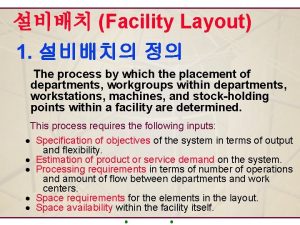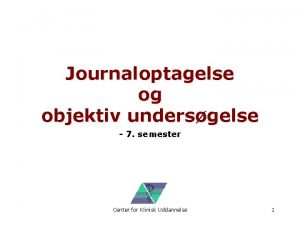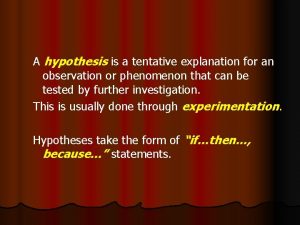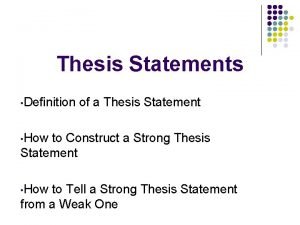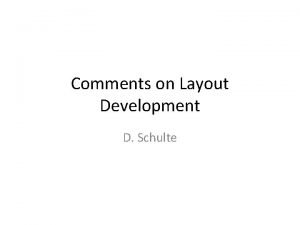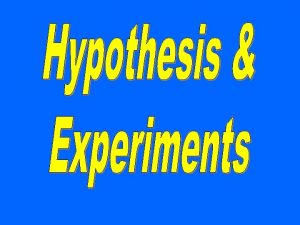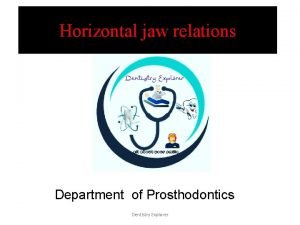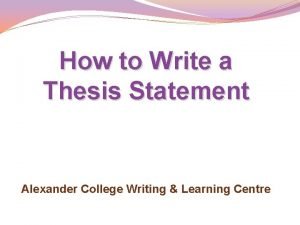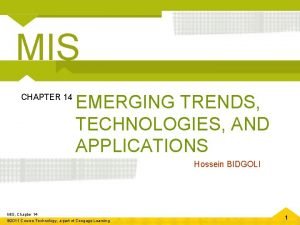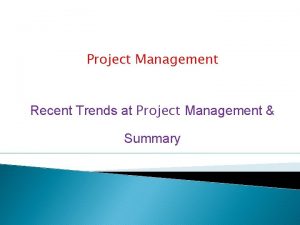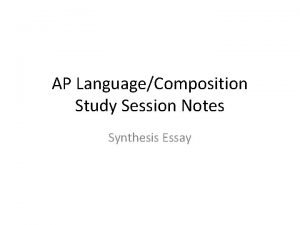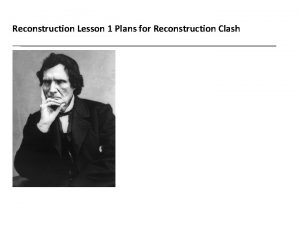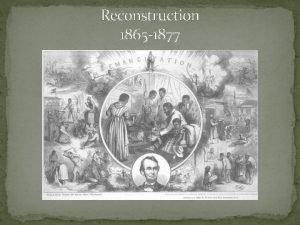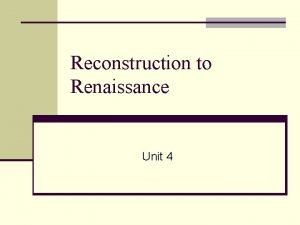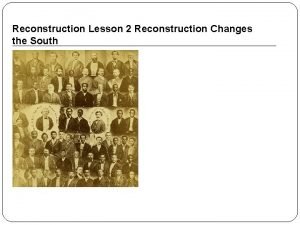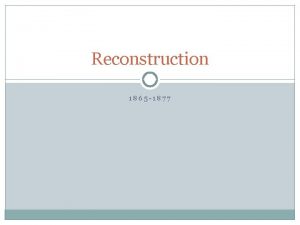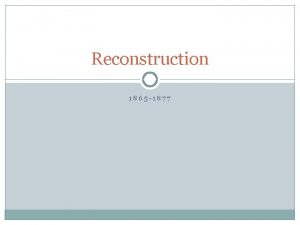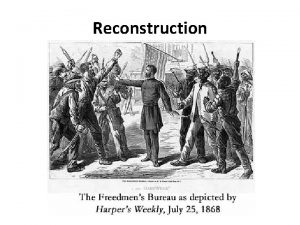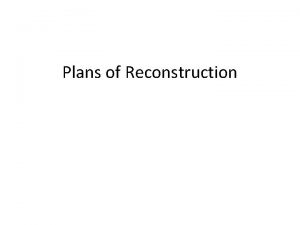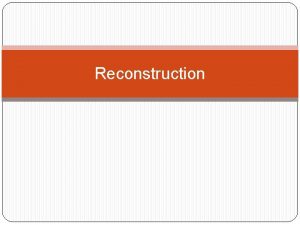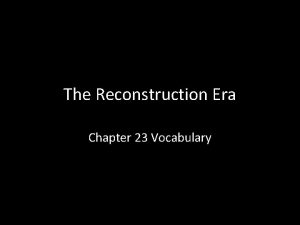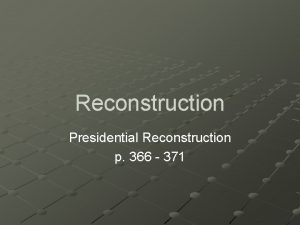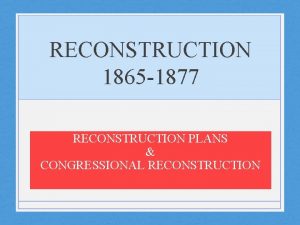Tentative reconstruction of the recent Hiatus using IPSLCM



















- Slides: 19

Tentative reconstruction of the recent Hiatus using IPSLCM 5 A-LR Didier Swingedouw, Juliette Mignot, Eric Guilyardi, Sébastien Nguyen, Lola Ormières

Hiatus and partial nudged simulations • Understanding dynamics explaining hiatus signal • Testing similar experimental design as Kosaka and Xie (2013) to evaluate consistency within IPSL model + home-made simulations Had. CRUT Trend T 2 M pattern in boreal winter 2002 -2012 POGA England et al. 2014

Atlantic-Pacific connection? 1992 -2011 trend obs. Mc Gregor et al. (2014): � AGCM (CAM 4) or AGCM + ML ocean 1992 -2011 SST global � Only five members 1992 -2011 SST Atl. Pac ML West Pac. Atlantic

Hiatus explanation? Adapted from England et al. (2014)

A role for small volcanoes? Santer et al. (2014): small tropospheric eruptions from 1998 may also played a role for the Hiatus Knutti et al. (2014), , Marotzke et al. (2015): forcing and internal variability may both played their role Meehl et al. (2011), : if you select the models in the good IPO phase, you can reproduce hiatus within historical simulations

Positive phase of the AMO Mc. Gregor et al. (2014) Intensification of the Pacific trade winds England et al. (2014) Negative phase of the IPO Kosaka et Xie (2013) HIATUS Santer et al. ( 2014) Radiative forcing from small volcanoes

Can we reproduce this Hiatus using classical nudging techniques of SST anomalies using IPSL-CM 5 A-LR model? (i. e. robustness of former proposed mechanisms? )

Experimental design Restoring of 40 W/m 2/s, 6 times lower than External forcing Kosaka and Xie: this could be important for dynamics! (cf. Cassou) Restoring towards 3 D wind every 6 hours with coef equal to 1/0. 25 s-1 Background volcanoes from 2006 in CMIP 6 projections! not included here in nudged simulations Simulations # members Restoring Historical 6 Nudged Glob. 1 (+4 to come) Global SST Reynolds et al. (2007) Nudged Pac. 7 Tropical East Pacific SST Reynolds et al. (2007) Nudged Atl. 7 Whole Atlantic SST Reynolds et al. (2007) Nudged Wind 1 10 -m wind from Era-Interim Partial nudging region

Global temperature response

Linear trend 1998 -2012 No simulation totally captures the observed trend from Had. CRU 0. 1°C/15 yrs is missing in Equivalent to the impact of background volcanoes! Error bars to come! Role of observation mask should be evaluated as well (cf. Hawkins et al. ) 0. 1°C/15 yrs nudged to global SST run compared to Had. CRUT

T 2 M Pattern anomalies Global SST nudging- historical (1998 -2010) Global wind nudging- historical (1998 -2010) Pacific SST nudging- historical (1998 -2010) Atlantic SST nudging- historical (1998 -2010)

Wind and SLP anomalies Global SST nudging- historical (1998 -2010) Global wind nudging- historical (1998 -2010) Pacific SST nudging- historical (1998 -2010) Atlantic SST nudging- historical (1998 -2010)

Zonal wind in the Tropical Pacific Zonal wind stress anomalies NB: 5 -yr running mean applied Cf. England et al. 2014

Atlantic-Pacific T 2 M differences Cf. Mc Gregor et al. 2014

PDO-AMO relationship IPSL-CM 5 A-LR Marini and Frankignoul 2033 On the opposite, we do find a weak positive correlation at lag 0 year in the IPSL-CM 5 A-LR control simulation

Atlantic-Pacific teleconnection AMO- minus AMO+ � Already not clear in pi. Control � Why? Issue wiith convection in the Atlantic (cold and warm bias)? Mechanisms at play? � Not very robust link in observations? (cf. Zanchettin et al. 2015) SST bias Dufresne et al (2013) Sung et al. GRL sub.

Conclusion-discussion �Tropical Pacific control of Hiatus is clear in IPSL-CM 5 A, not the Atlantic �Why AMO-IPO link is not the same as in observations (cf. Marini & Frankignoul 2013) within pi. Control from IPSL-CM 5 A-LR �Role for the biases? �Observed relationship maybe not so significant? only a few phases change of the AMO over the instrumental era, need for longer time frame: last millennium? �Partially nudged simulations: a new MIP for DCPP (? )

Thank you!

Validation nudgés partiels
 Baggage identification chart
Baggage identification chart Formal definition examples
Formal definition examples Deklive ødemer
Deklive ødemer Tentative explanation for an observation
Tentative explanation for an observation Three-pronged thesis statement
Three-pronged thesis statement Tentative layout
Tentative layout Vant hoff plot
Vant hoff plot Youre goals
Youre goals A tentative proposition subject to test is
A tentative proposition subject to test is Tentative project plan
Tentative project plan Tentative verbs
Tentative verbs Realeff
Realeff Tentative thesis statement example
Tentative thesis statement example Tentative career decision
Tentative career decision Active voice headlines
Active voice headlines Mis trends
Mis trends Current trends in project management
Current trends in project management Jose has just played a long bruising football game
Jose has just played a long bruising football game Ap synthesis prompt
Ap synthesis prompt Https drive google com drive u 0 recent
Https drive google com drive u 0 recent
